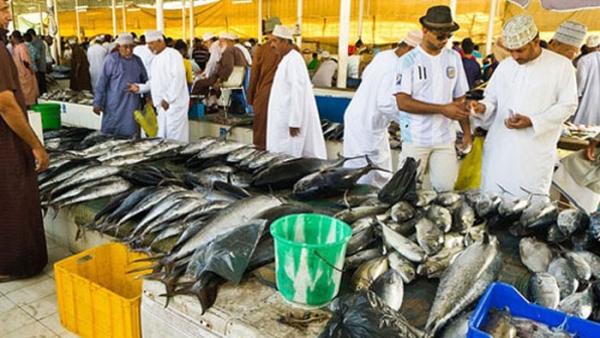
Muscat: A senior official at a leading fishing firm on Tuesday urged the setting up of central fish markets in the Salalah, Sohar, Musandam and Muscat governorates, besides allowing registration of expatriate fishermen.
Said Al Rawahi, general manager of Oman Fisheries Company, suggested that all catches that come from fishermen or fishing firms should be sold in the domestic market through an auction in the central fish market and the fish market should be leased to the private sector for managing operations. Presently, Oman has a central fish market in Barka, which is managed by the Ministry of Agriculture and Fisheries.
“We are recommending to the government to establish a new company to run those facilities and then regulate the operations,” Al Rawahi stated.
“The fish markets should be open at least two to three times a day for a total duration of up to 14 hours (every day), which would help the fishermen and truck drivers buy and sell fish easily without any delay or compromising the quality.” The Barka market is open for few hours.
In the short run, he suggested for allowing the registration of expatriate fishermen, because this could help in resolving the problems faced by the industry. With a long-term plan to introduce Omanisation in a phased manner, the problems related to fish auction/marketing will be solved permanently. Al Rawahi said Oman has around 45,000 fishermen, who collectively produce over 2,200 tonnes of fish every year.
He said the Oman Fisheries Company has been promoting the fisheries sector in Oman, by supporting local fishermen and exploring new international markets for Omani fish products.
“The company competes in the international market through its reputation as a reliable supplier for a group of high-quality diversified seafood products.”
He said the Oman Fisheries Company has succeeded in promoting fish from Oman in international markets, such as Japan and the United States.
Al Rawahi also noted that the company has already implemented a five-year plan, which is focused on expanding the link between Oman Fisheries and the local fishermen. The number of fishermen who work for the company has increased to 400 now, from 20 some five years ago.
The company supports these fishermen either by purchasing boats or providing engines for boats, as well as providing ice, bait, and other equipment. Oman Fisheries purchases fish from them for its plants. In the last two years, Oman Fisheries has allocated OMR200,000 every year to support the fishermen associated with it and provided training for a group of fishermen in South Korea. Referring to the challenges facing the company, Al Rawahi said the majority of fish catch from Oman is exported as fresh fish to neighbouring countries by truck drivers to be auctioned off later in those export markets.
These trucks work in an unregulated manner, so these issues affect the domestic market. As many as 88 trucks (ranging from one to 10 tonnes capacity) on a daily basis transport fresh fish outside the Sultanate. The average daily exported quality of fish is around 352 tonnes.
He also noted that there is a plan for promoting aquaculture in two locations—Sur and Masirah—and the proposal has been forwarded to the relevant authorities for permission. The government should facilitate companies with support and provide discounts to the operators of long-haul vessels engaged in fishing in the high seas.
These products can be exported to neighbouring countries, can help in the development of the sector to a large extent.